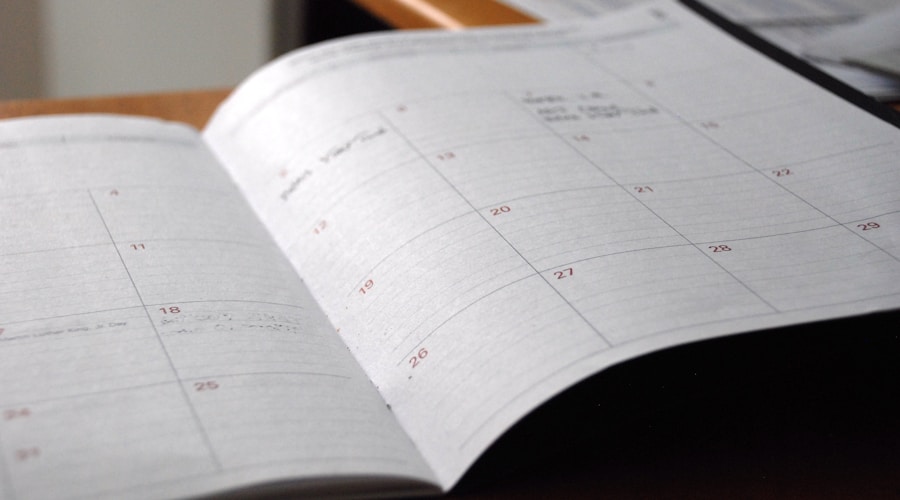Working remotely can be both liberating and challenging. It allows you the freedom to work from the comfort of your own home, but it also requires discipline and organization to stay productive and balanced. In this guide, we'll explore practical tips and techniques to help you navigate the world of remote work successfully.
As Elizabeth Gilbert, the author of "Eat, Pray, Love," once said, "The responsibilities of work and family often leave people feeling too rushed or tired to plan for anything else. It takes an effort to look around, observe your surroundings, and connect with the present." This is particularly true for remote workers who may find it difficult to separate their work and personal lives.
Whether you're new to remote work or looking for strategies to improve your routine, this guide will provide you with the tools to create a productive and balanced work-from-home experience. So, let's dive in and discover how you can make the most of your remote work setup.
Creating Your Home Office
Setting up a designated workspace in your home is crucial for maintaining focus and productivity. Make sure that your home office is comfortable, organized, and free from distractions. According to productivity expert David Allen, "Your physical environment can have a significant impact on your mental focus and energy levels."1
Here are some tips for creating an effective home office:
Choose the right location: Select a quiet area of your home where you can work without interruptions. Natural light and a nice view can also boost your mood and energy levels.
Get the right furniture: Invest in a comfortable chair and a spacious desk. Your body posture and comfort are key to staying productive throughout the day.
Organize your space: Keep your work area tidy and free from clutter. Use shelves, drawers, and organizers to store your supplies and keep your workspace neat.
Personalize your space: Add some personal touches such as photos, plants, or artwork to make your home office feel welcoming. This can help create a positive and inspiring environment for your work.
Manage your technology: Ensure that you have a reliable internet connection, a good quality monitor, and all the necessary tools and software for your work. Adequate technology is essential for remote work success.
Remember, your home office should be a place where you can focus and be productive. By creating a comfortable and functional workspace, you can set yourself up for success while working from home.
Setting Up a Routine
When working from home, it's important to establish a routine to help you stay focused and productive. Without the structure of a traditional office environment, it's easy to lose track of time and become distracted. Creating a routine can help you maintain a sense of normalcy and keep your work on track.
One work-from-home veteran, Sarah, shares her insight on the importance of setting up a routine: "Having a routine helps me start my day on the right foot and stay organized. It's like creating a sense of structure in what can sometimes feel like a chaotic environment."
Create a Designated Workspace
First and foremost, designate a specific area in your home for work. This could be a spare room, a corner of the living room, or even a dedicated desk in your bedroom. Your workspace should be comfortable and quiet, with minimal distractions. As author Gretchen Rubin puts it, "Outer order contributes to inner calm".
Set Regular Working Hours
Establish set working hours for yourself and stick to them. This will help you develop a sense of discipline and structure. It's crucial to clearly delineate your work time from your personal time, as boundaries can often blur when working from home. Entrepreneur Tim Ferriss recommends, "Protect the time and space in which you write. Keep everybody away from it, even the people who are most important to you."
Plan Your Day
Start each day by setting specific goals and tasks to accomplish. This will help you stay focused and prioritize your workload. Organizational expert Marie Kondo advises, "By carefully selecting which items spark joy when you hold them, you are choosing to surround yourself with people and things that make you happy."
Incorporate Breaks
It's also important to schedule regular breaks throughout your day, just as you would in an office setting. This will help prevent burnout and keep your energy levels up. Take a walk, stretch, or simply step away from your workstation to clear your mind. As author Zig Ziglar once said, "Take time to be thankful for everything that you have. You can always have more, but you could also have less."
By setting up a routine, you can maintain a sense of structure and balance while working from home. With a designated workspace, regular working hours, daily planning, and scheduled breaks, you'll be better equipped to stay productive and focused throughout your day.
Managing Distractions
Working from home can sometimes mean dealing with more distractions than you would at the office. It's important to set boundaries and create a focused work environment for yourself.
One way to manage distractions is to designate a specific area in your home as your workspace. Caroline, a remote worker, suggests, "Try to find a quiet spot in your home where you can establish a dedicated work area. This will help you mentally separate your professional and personal life."
Another tip is to establish ground rules with your family members or roommates. Let them know that when you're in your home office, you need uninterrupted time to focus on work. As John, a freelancer, advises, "Communicate your work hours and let your family or housemates know when you'll be available for social interactions and when you need to concentrate."
It's also important to limit your exposure to distractions like social media, television, or household chores during your designated work hours. According to productivity expert Laura Vanderkam, "When you're working from home, it's easy to get sucked into non-essential activities. Set specific time blocks for breaks and leisure activities to avoid getting sidetracked."
By implementing these strategies, you can create a productive and focused work environment at home, minimizing distractions and maximizing your efficiency. Remember, a little structure can go a long way in keeping you on track and ensuring that you're able to accomplish your tasks effectively.
Taking Breaks and Time Management
In order to stay productive while working from home, it's important to manage your time effectively and take regular breaks. It may seem counterintuitive, but taking breaks can actually improve your productivity and focus.
When it comes to time management, it's important to set clear boundaries for your work hours. As Rob Cross, a professor at Babson College, puts it, "Being able to set limits, to say ‘no’ to things that don’t fit with your priorities, and to make tough decisions about what you will and won’t do is crucial."
Taking breaks is also crucial for maintaining your productivity. According to a study published in the Journal of Applied Psychology, brief diversions from a task can dramatically improve one's ability to focus on that task for prolonged periods.
So, how can you incorporate breaks into your workday? First, make sure to take short breaks every hour to stretch, walk, or rest your eyes. Get up, move around, and give yourself a mental breather. As author and entrepreneur Michael Hyatt advises, "Try to do at least one thing that refreshes you mentally, physically, or emotionally."
When managing your time, it's also important to prioritize your tasks and use tools that can help you stay organized. For example, consider using apps like Trello or Todoist to keep track of your tasks and deadlines. As productivity expert David Allen recommends, "You have to decide what your highest priorities are and have the courage—pleasantly, smilingly, nonapologetically, to say ‘no’ to other things."
By taking regular breaks and managing your time effectively, you can maintain your productivity and avoid burnout while working from home.

Staying Connected with Colleagues
One of the challenges of remote work is staying connected with your colleagues. It's important to maintain strong relationships and open lines of communication, even when you're not in the same physical workspace.
To stay connected with your colleagues, make an effort to communicate regularly. Schedule regular check-ins with your team via video calls or phone calls. As author Ken Blanchard says, "None of us is as smart as all of us" , so staying connected with your colleagues can lead to better collaboration and problem-solving.
You can also utilize instant messaging platforms to stay connected throughout the day. By staying in touch, you can maintain the sense of camaraderie and support that comes from working in an office.
In addition, make an effort to engage in non-work-related conversations with your colleagues. Ask them about their weekend, their hobbies, or their families. Building personal connections helps foster a sense of community, even when you're working remotely.
By staying connected with your colleagues, you can maintain a sense of teamwork and collaboration, even when you're not in the same physical space.
Maintaining Work-Life Balance
When you're working from home, it's easy for your professional and personal life to blur together. To avoid burnout and maintain a healthy work-life balance, it's important to set clear boundaries and stick to them.
Start by establishing a designated workspace in your home. This can help create a physical separation between your work and personal life. As Scott Berkun, a best-selling author and speaker, puts it, "Having a dedicated work area is vital for creating boundaries."
Additionally, it's essential to set specific work hours and stick to them as much as possible. This will help you avoid overworking and ensure that you have time for yourself and your loved ones. As Mary Ellen Slayter, a career expert and writer, advises, "Just because you work from home doesn't mean you have to be available 24/7."
Another key aspect of maintaining work-life balance is learning to disconnect. It's important to have clear boundaries between work time and personal time. Consider using technology to your advantage by utilizing tools that allow you to silence work-related notifications during non-work hours.
Lastly, don't forget to schedule regular leisure and relaxation time for yourself. Whether it's spending time with family, pursuing a hobby, or simply resting, taking time for yourself is crucial for preventing burnout and staying energized.
Maintaining work-life balance while working from home requires commitment and discipline, but it's essential for your well-being and overall productivity. As author and speaker Marissa Orr wisely said, "You deserve the same boundaries and time off as anyone else, so give it to yourself." By prioritizing work-life balance, you can ensure that you're able to thrive both personally and professionally.

Staying Healthy and Active
Taking care of your physical health is just as important as your work tasks when you're working from home. It's easy to get stuck in a sedentary routine when you don't have to commute to an office every day. But staying active can help you stay focused and energized throughout the day. As fitness expert Jane Fonda says, "Physical fitness is not only one of the most important keys to a healthy body, it is the basis of dynamic and creative intellectual activity."
Here are some tips to help you stay healthy and active while working remotely:
1. Move your body: Make sure to get up and move around during the day. This could be as simple as taking a short walk around your home or doing some stretching exercises. Fitness trainer Jillian Michaels advises, "It doesn't have to be an hour in the gym every day. It could just be 20 minutes of exercise that makes a huge difference."
2. Set regular exercise breaks: Schedule regular breaks for physical activity, just like you schedule your work tasks. You could do a quick yoga session, go for a run, or even just do some jumping jacks to get your heart rate up. As health expert Kenneth H. Cooper suggests, "The reason I exercise is for the quality of life I enjoy."
3. Make healthy food choices: Working from home means you have easy access to your kitchen, so take advantage of it by preparing healthy meals and snacks. Registered dietitian nutritionist, Joy Bauer, emphasizes the importance of eating well, "Food is fuel. Eat to live (and work) don't live (and work) to eat."
4. Stay hydrated: Keep a water bottle at your desk and make sure to drink plenty of water throughout the day. Dehydration can lead to fatigue and lack of focus, so make it a habit to stay hydrated.
By incorporating these healthy habits into your remote work routine, you can ensure that you're taking care of yourself while also being productive.
Conclusion
Remember, working remotely can be both rewarding and challenging, but with the right strategies, you can stay productive and balanced. As you set up your home office and establish a routine, keep in mind the importance of managing distractions and taking breaks. Kelsey, a remote worker, shares her experience: "It's crucial to find a balance between work and personal life. Taking short breaks throughout the day helps me stay focused and energized."
Staying connected with colleagues is also vital for your well-being and productivity. As Mark, a team leader, emphasizes, "Regular check-ins and virtual coffee chats with my team keep us connected and motivated."
Lastly, prioritizing your health and maintaining an active lifestyle is key to sustaining your productivity and well-being. As you focus on your work, don't forget to take care of yourself. Remember to incorporate movement and healthy habits into your day. As Dr. Patel advises, "Make sure to schedule regular exercise into your day and take care of your mental health."
By following these tips and staying mindful of your work-life balance, you can make the most out of your remote work experience. Keep adapting and finding what works best for you, and remember that it's okay to seek support when you need it. Here's to a successful and balanced journey as you navigate the world of remote work! .

2Gretchen Rubin, Outer Order, Inner Calm: Declutter and Organize to Make More Room for Happiness (2019)
3Rob Cross, "Collaboration Overload," Harvard Business Review (2018)
4Alejandro Lleras and Atsunori Ariga, "Brief and Rare Diversions Aid Attentional Refreshing," Journal of Applied Psychology (2014)
5Michael Hyatt, "Free to Focus: A Total Productivity System to Achieve More by Doing Less" (2019)
6David Allen, "Getting Things Done: The Art of Stress-Free Productivity" (2001)
7Ken Blanchard, Collaboration Begins with You (2015)
8Jane Fonda, Prime Time: Love, Health, Sex, Fitness, Friendship, Spirit — Making the Most of All of Your Life (2011)
9Jillian Michaels, Master Your Metabolism: The 3 Diet Secrets to Naturally Balancing Your Hormones for a Hot and Healthy Body! (2009)
10Kenneth H. Cooper, Controlling Cholesterol the Natural Way: Eat Your Way to Better Health with New Breakthrough Food Discovery (1986)
11Joy Bauer, Joy's LIFE Diet: Four Steps to Thin Forever (2008)
12Dr. Sarah Patel, "The Power of Balance: Nurturing Your Mind, Body, and Work," (2019)
